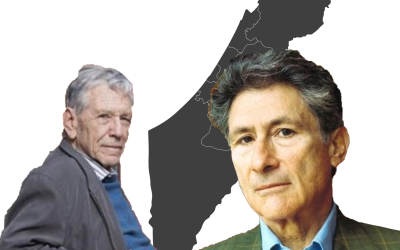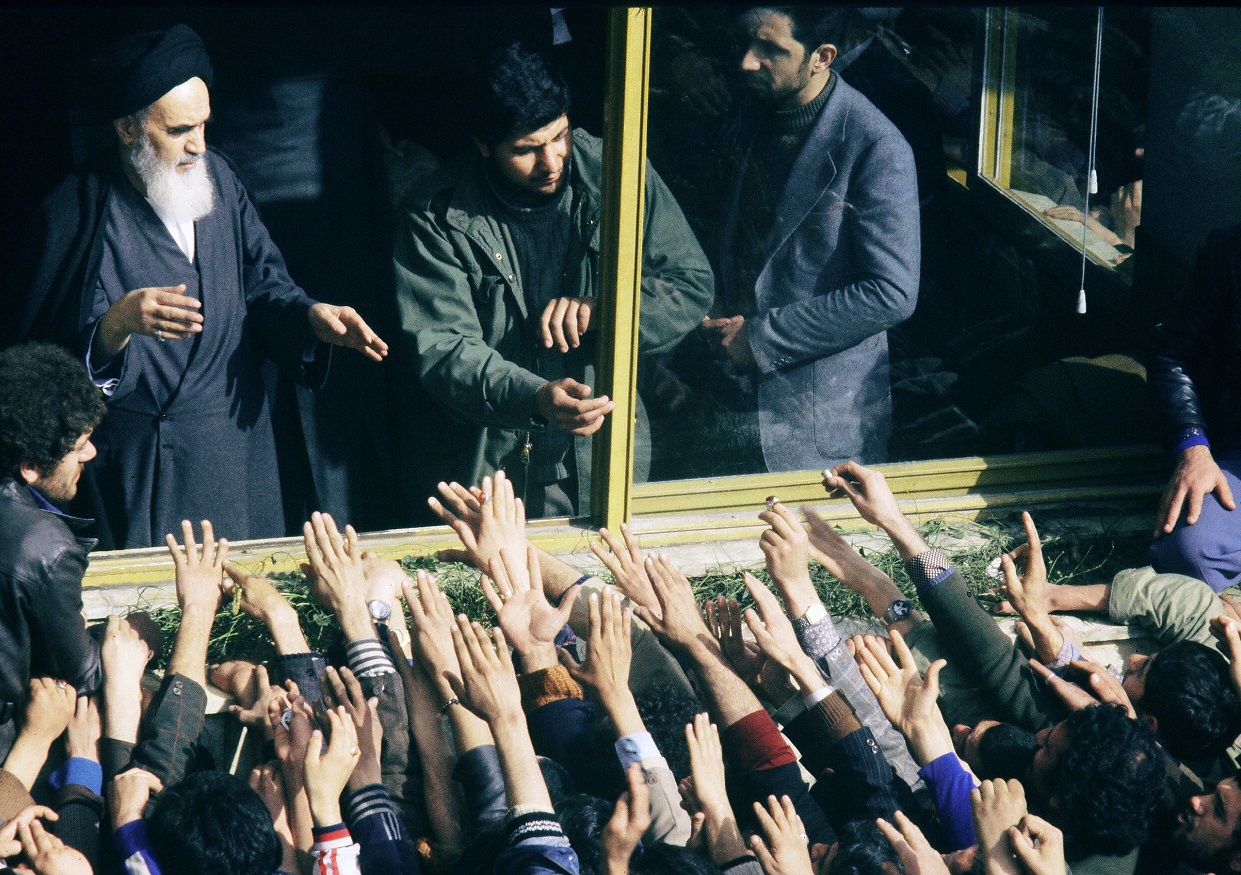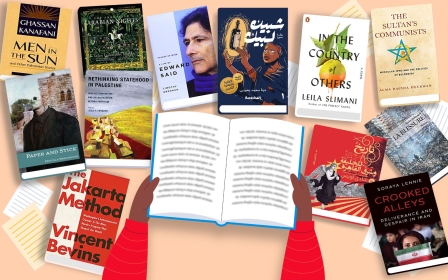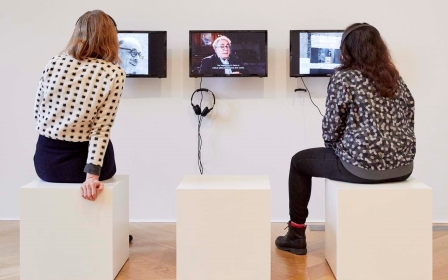Iradj Bagherzade: A life in books, pushing new boundaries
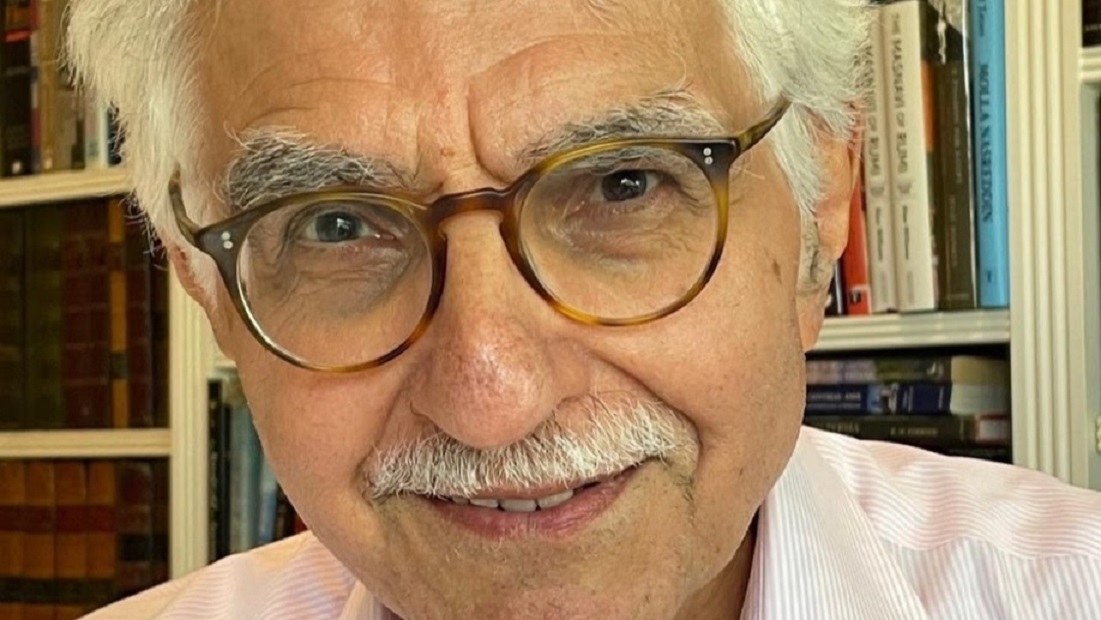
It’s no surprise that industry peers refer affectionately to Iradj Bagherzade as “Iradj”, on a first-name basis that reflects the personal warmth and closeness felt by all who crossed paths with him.
He’s remembered for his undying wit, his inimitable charisma and elegance, his kindness and approachability, and his joie de vivre.
He effortlessly straddled different worlds: academic and business, the UK and the Middle East. He was both “fully English and fully Iranian at the same time,” a close friend of his remarked.
“He regaled me with stories of meeting Gorbachev in Moscow in the early 2000s and the like,” David Avital recalls, who in 2019 took over from him as editorial director of I.B. Tauris, an imprint of Bloomsbury.
“He would always ask the questions that nobody else would,” shares Lizzy Vartanian Collier, who worked at I.B. Tauris between 2016 and 2019 on projects such as Abdolreza Ansari’s The Shah’s Iran.
New MEE newsletter: Jerusalem Dispatch
Sign up to get the latest insights and analysis on Israel-Palestine, alongside Turkey Unpacked and other MEE newsletters
A start in publishing
Bagherzade, born in Vienna in 1942, went on to study at Oxford University, where he received a degree in Law, which he never practiced. Instead, he opted to take his first steps in the publishing world with Time-Life in New York.
In the 1970s, Time-Life was a booming enterprise that took Bagherzade to various European capitals before he led the company’s entry into the Iranian market in Tehran, where he relocated in the mid-1970s.
Ideally suited for the post, Bagherzade headed Time-Life’s nascent Tehran venture a few years before the Iranian Revolution. Despite his early success, Iran’s new political configuration proved difficult for a company with American ties such as his.
He left Iran for London in 1980, married his wife Shahnaz, and embarked on what would become his enduring professional legacy: I.B. Tauris.
We are deeply saddened to hear of the passing of I.B. Tauris’s founder, Iradj Bagherzade. Chairman for 35 years, he oversaw 1000s of books, and transformed the landscape of Middle East & Islamic Studies publishing. His quick wit, intelligence and kindness will be much missed. pic.twitter.com/ZlnIF547Xg
— I.B. Tauris (@ibtauris) January 11, 2023
He set up offices in London’s media hub of Covent Garden, at 3 Henrietta Street, in a room once used as a film set for Alfred Hitchcock’s Frenzy (1972). As a big Hitchcock fan, this was an anecdote he shared with many, including film critic and scholar Arash Azizi, and presaged the company’s expansion into film studies and world cinema, one of the niches that I.B. Tauris would later colonise.
With a first list established in 1983, Bagherzade propelled I.B. Tauris to become a world leader in English-language publications related to Middle East studies.
A university press without a university
Bagherzade saw a gap in the publishing world. “We are the only major university press without a university,” Bagherzade wrote in a 2014 opinion piece.
In his own words, he explained that: “The current state of post-Cold War international politics has helped us to shape our list and to exploit the need for information on quarrels in faraway places between people of whom we know nothing.”
His vision was clear. He wanted to make serious content interesting for larger audiences, without diluting or dumbing it down, and always maintain the highest academic standards. He was obsessed with building bridges and connections across cultures, defying labels, and helping people see through nuance and understanding.
I.B. Tauris rapidly went on to release between 200-300 titles annually, ranging from international politics, history, religion, culture, travel, art, and more.
Bagherzade sought to break down stereotypes in the process and give a voice to authors whom he felt had something important to say.
He published Pakistani journalist Ahmed Rashid’s Taliban in 2000. Just after the 9/11 attacks, the book quickly became a bestseller. For David Avital, it’s a success that pays homage to Bagherzade’s flair.
“That I.B. Tauris’s publishing was so often ahead of the headlines is what drew me to joining the list. Ahmed Rashid’s book on the Taliban is the classic example of this: an important work of journalism no doubt but a fairly obscure topic when the book [was] first published in 2000. Then a year later 9/11 happens and everyone needs to know about the Taliban. To this day, I think it’s the definitive book on the topic,” Avital tells Middle East Eye.
Other such examples of Bagherzade’s eye for the topical include I.B. Tauris’ titles on Central Asia, Ukraine, and even cyber warfare.
After a backlist of 4,000 titles and several offers from competitors, I.B. Tauris was acquired by Bloomsbury as a new imprint in 2018 for nearly £6m ($7.4m), joining its academic and professional division.
Even after the sale, Bagherzade remained hands-on involved as Chairman. “He could not ‘retire’ after selling IBT to Bloomsbury. He was absolutely passionate about his publishing life,” a family member shares with Middle East Eye.
A legacy of building bridges
“There has obviously been a whole library of books published by big global publishers on Middle East history and culture in the last 20 years but Iradj saw that you could publish these books not for a specialist readership but for a large audience of serious readers long before anyone else,” says Avital.
I.B. Tauris welcomed scholars from all walks of life, including first-time authors. He worked closely with them to help turn manuscripts into marketable trade books.
Critic Farah Nayeri underscores Bagherzade’s sense of community and solidarity, describing him as “a leading light, a mentor to so many.”
He would frequently take aspiring authors, academics, and publishers out to lunch to give them advice and help them in their careers in any way he could. Friends note his go-to spots were Assaggi in Notting Hill and the Reform Club on Pall Mall.
Avital remembers his first meeting with Bagherzade, during which he wanted to learn more about the imprint’s history as he took up his new role. “Iradj always seemed to be much more focused on what was next rather than looking back.”
Thousands of books later, and since the Bloomsbury sale, Bagherzade was focused on new projects and ventures, foremost among them IB2Media, to “bridge the gap between, on the one hand, scholarly and academic works and, on the other hand, serious nonfiction publishing for readers interested in the state of the world".
Helen Lewis, Director of Literally Public Relations Ltd, had plans for the launch of numerous books with Bagherzade under IB2Media. “I prepared myself to meet an old-school publishing legend and found that he was not just a total publishing pro, but also a total gentleman, and very witty, charming, and easy to get along with,” as she recalls meeting him in early 2022.
Their first project turned out to be their last, working together on Sir Michael Burton's On Her Majesty's Diplomatic Service (2022) which coincided with the passing of Queen Elizabeth II. “Iradj was a rare gem in publishing and he will be truly missed,” she adds, sharing one of many tributes.
So sad to hear the news that Iradj Bagherzade, the founder of the I.B. Tauris publishing house, has passed away. He was a true gentleman and a great raconteur who published some of the most important books in Iranian Studies, amongst numerous other fields. We shall miss him. pic.twitter.com/s2pxPdsw4R
— Roham Alvandi رهام الوندی (@DrRohamAlvandi) January 12, 2023
“The literary world has lost a lion… I miss him so much already. Thank you for encouraging me to write two books. How lucky am I and countless other writers to have known you. Brilliant, funny, warm”, wrote BBC correspondent Laura Trevelyan.
“Warm, brilliant, editor, built up I.B. Tauris into significant player. Willing to publish my 2015 book warning Brexit would happen when entire establishment said it wouldn’t”, wrote Denis MacShane, Minister of State for Europe under former British Prime Minister Tony Blair.
“The Iranian community in London has lost a distinguished member,” writes Dr. Farhad Daftary, Director Emeritus of the Institute of Ismaili Studies in London and close friend to Bagherzade for decades.
Iradj Bagherzade is survived by his wife Shahnaz, their two children Tara and Nezam, and three grandchildren.
Middle East Eye delivers independent and unrivalled coverage and analysis of the Middle East, North Africa and beyond. To learn more about republishing this content and the associated fees, please fill out this form. More about MEE can be found here.


